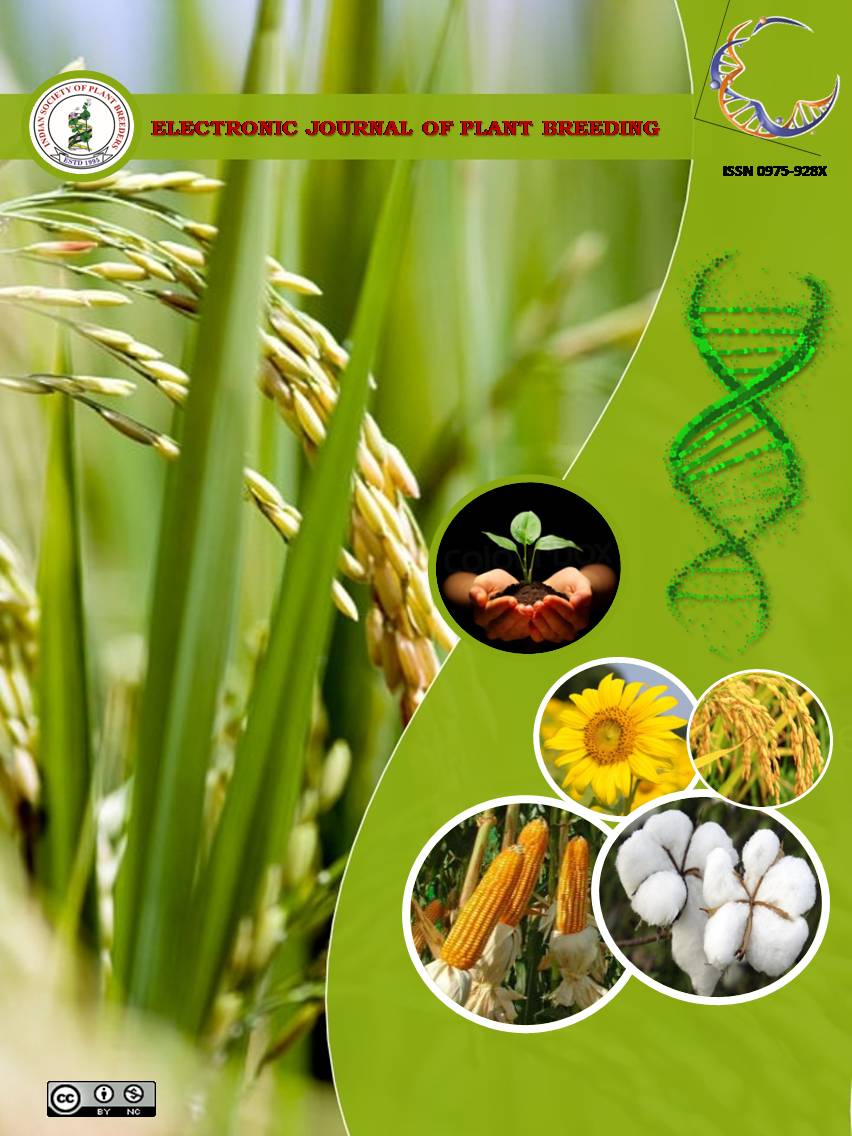Morpho-physiological studies on moisture deficit stress tolerance in F2:3 population of muskmelon (Cucumis melo L.)
Abstract
Moisture deficit stress is a major abiotic factor affecting muskmelon quality and productivity globally. Here we have examined the response of morpho-physiological traits under moisture deficit stress condition in muskmelon parental lines viz., Durgapur Madhu (DM) and BS25 along with F2:3 population derived from their cross for contrasting stress tolerance traits. Moisture stress reduced relative water content significantly (p < 0.01) with variation recorded among population lines. We observed that relative water content showed significant positive correlation (r = 0.34) with proline. A significantly increased value of the proline content (8.68 µg/gm), membrane stability index (27.11 mS/cm) and leaf area (24.43 cm2) were observed in BS25 compared to DM genotype. Some population lines such as L8, L10, L83, L16, L21, L54, and L63 showed significantly higher values for proline content and relative water content in moisture stress condition. We observed variability for different traits in the F2:3 population that allowed selection of individual lines with possibly greater potential of moisture stress tolerance, which can be useful in future breeding programs in muskmelon

It is certified that:
- The corresponding author is fully responsible for any disputes arising due to the publication of his/her manuscript.
- The article has been seen by all the authors who are satisfied with its form and content.
- The sequence of names of authors in the by-line is as per their relative contribution to this experiment, giving due credit to all scientists who made notable contribution to it.
- All the authors fully understand that inclusion of any other co-authors or exclusion of any co-authors is not possible once the article has been submitted to the journal.
- The corresponding author takes full responsibility for this article.
- The address of the organization where the research was conducted is given.
- The article is exclusive for this journal, and the results reported here have not been sent (and will not be sent during its consideration by this journal) for publication in any other journal.
- Authors agree to abide by the objective comments of referees and do agree to modify the article into a short note as per the recommendation, for publication in the Electronic Journal of Plant Breeding.
- If published in Electronic Journal of Plant Breeding, the copyright of this article would vest with the Indian Society of Plant Breeders, who will have the right to enter into any agreement with any organization in India or abroad engaged in reprography, photocopying, storage and dissemination of information contained in it, and neither we nor our legal heirs will have any claims on royalty.


